Do anti-aging vitamins work?
We look into the science behind anti-aging vitamins and how certain vitamins can promote successful aging
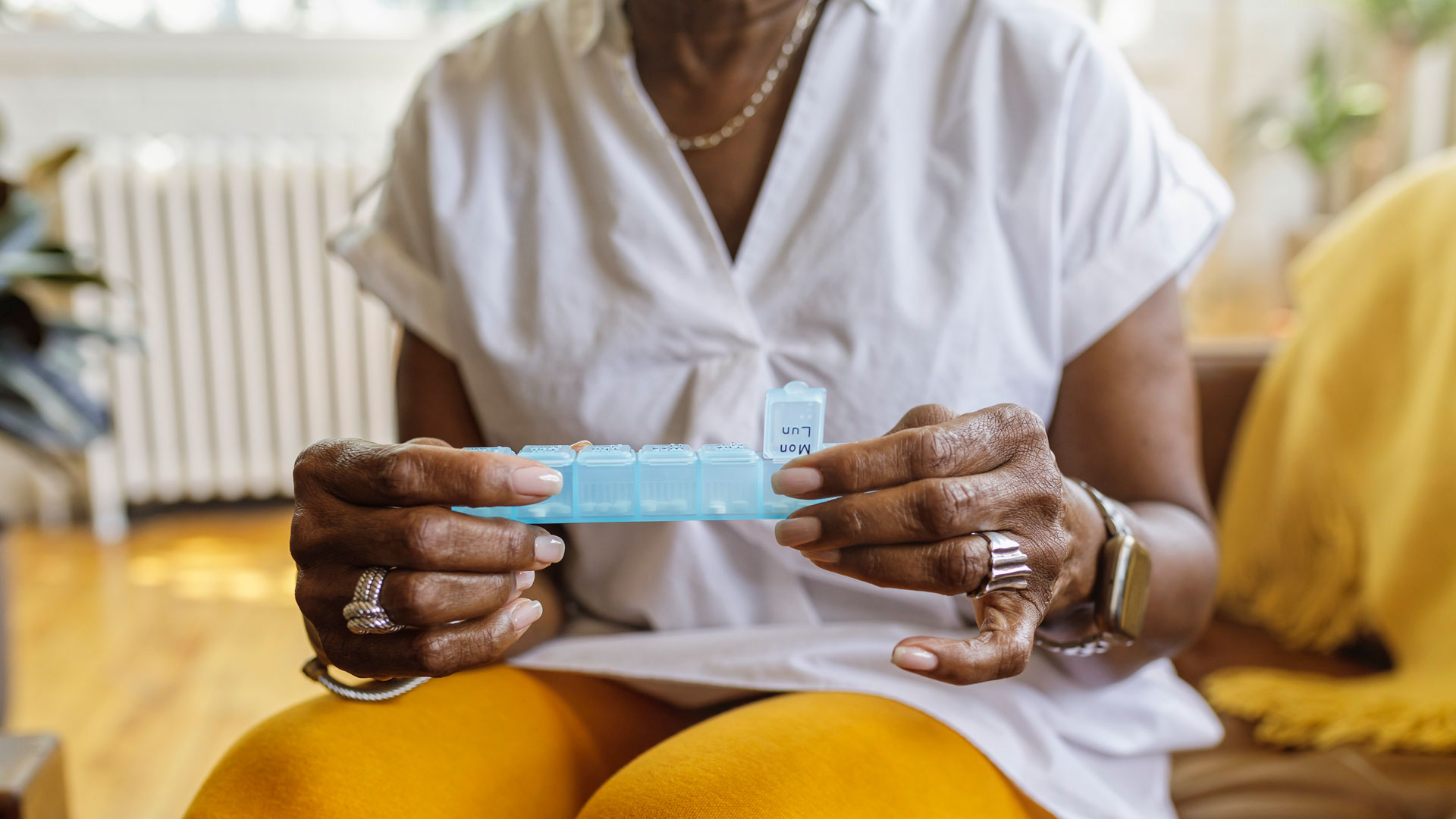
Anti-aging vitamins are becoming increasingly popular but anti-aging itself is a sometimes controversial term, considering the only thing that truly reverses visible signs of aging is cosmetic surgery. However, there are some dietary changes you can make to naturally slow down the process of aging, such as eating ‘anti-aging vitamins,’ which are generally vitamins with antioxidant to anti-inflammatory properties. While these anti-aging vitamins might not stop time in its tracks, or undo the effects of an unhealthy lifestyle, they may help you to look your best at any age.
We’ll also address the lifestyle changes you might need to make, as certain things, like smoking and poor sleep, can age you faster.
Over the age of 50, you may find yourself developing vitamin deficiencies as your body changes. We’ve put together guides to the best vitamins for women over 50 and the best b12 supplements to help you stay on top of your health and wellness.
Do anti-aging vitamins work? Everything you need to know
A review in the FEBS journal indicates that immune dysfunction and changes in inflammatory pathways directly contribute to the aging process and are essential propagators of tissue deterioration. With this in mind, vitamins that promote both the immune system, and reduce inflammation in the body can slow down the aging process by supporting these systems.
Dr. Ross Perry, a cosmetic surgeon and Medical Director of Cosmedics skin clinics, tells us that anything claiming to reverse signs of aging is a scam, however, we can promote successful aging through dietary and lifestyle choices. “How we age is down to a number of factors which include lifestyle and genetics. If you lead an unhealthy lifestyle, drink, smoke, and eat badly then the likelihood is you will age far quicker. Of course, having a good skincare regime, eating healthily, drinking plenty of water, exercising, and getting plenty of sleep will all help to slow down the aging process far more than any type of vitamin. If you’re concerned you may be vitamin deficient due to diet then it’s worth having a chat with your GP.”
A review in Oxidative Medicine and Cellular Longevity finds that inflammation is a major factor in the progression of various chronic diseases/disorders, including diabetes, cancer, cardiovascular diseases, eye disorders, arthritis, obesity, autoimmune diseases, and inflammatory bowel disease. As diseases are often an unwelcome part of aging, often brought on by years of poor lifestyle choices, it is important to reduce inflammation in the body where we can in order to age in the healthiest way we can.
Dr. Tariq Mahmood, Medical Director at Concepto Diagnostics, tells Fit&Well that while anti-aging vitamins don’t necessarily exist, there are some vitamins that promote healthful aging. “There’s no such thing as a vitamin with strict ‘anti-aging’ effects. Some vitamins can help slow the usual signs of aging by keeping your skin as healthy as possible, but vitamin A doesn’t stand for vitamin anti-aging. Rather, vitamin C and vitamin E are among the most beneficial.”
Get the Fit&Well Newsletter
Start your week with achievable workout ideas, health tips and wellbeing advice in your inbox.
Of course, anti-aging is not just about appearance, so if you are looking for the best supplements for joints and easing inflammation, look no further.
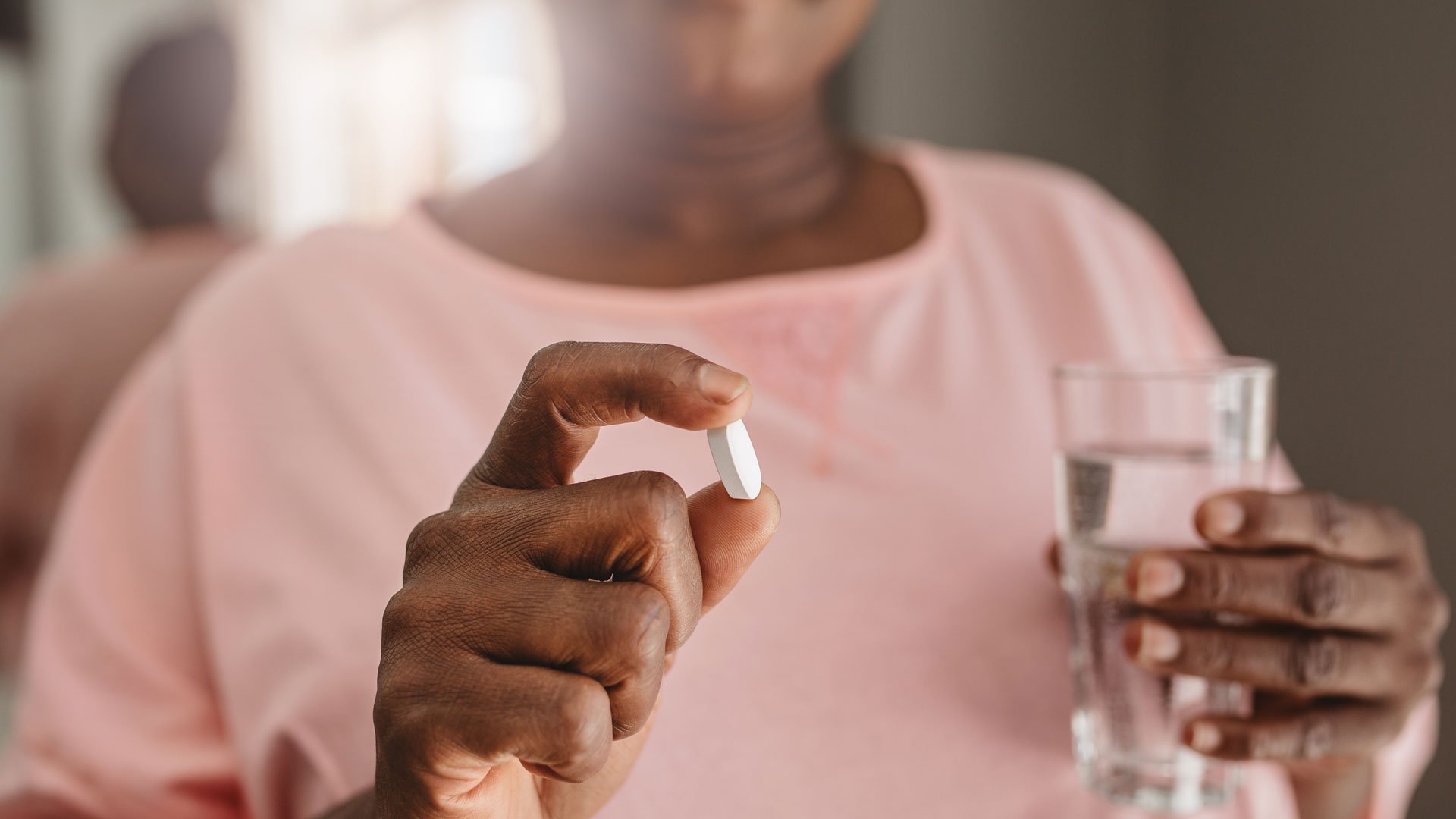
Which vitamins help with aging?
Vitamin C
Vitamin C is a powerhouse of vitamin that is great for our immune systems, which assists in the absorption of iron and is involved in tissue repair, collagen production, and the enzymatic production of certain neurotransmitters. In short, this water-soluble vitamin is important for all ages and is not just an anti-aging vitamin, and it is also great for your skin.
Dr. Perry tells us “ Vitamin C is the most common antioxidant found in the skin, it is considered important in repairing free radicals and slowing down the aging process. However, Vitamin C is found in vegetables and citrus fruits so if you’re eating plenty of these foods there really is no reason to supplement.”
Dr. Ioannis Liakas, Medical Director at Vie Aesthetics, a Harley Street medical and cosmetic clinic explains the antioxidant effects of vitamin C in the body. “Vitamin C functions as a powerful antioxidant in your body, helping to protect cells from oxidative damage. Not only this, but it also plays a vital role in immune function, inflammation regulation, and many other processes that are essential to healthy aging,” he says, “You should maintain an optimal intake of this vitamin to support health and protect against age-related conditions. Interestingly, Vitamin C is also essential for skin health. Supplementing may improve skin hydration, stimulate collagen production and safeguard against wrinkle development and premature aging due to sun exposure.
Dr. Mahmood tells us more about oxidative stress, and how this can cause inflammation in the body. “Oxidative stress occurs when free radicals - agents in the body which form as a result of normal body processes - damage cells in the body and skin,” he says. “Lifestyle choices like smoking and ultraviolet radiation from overexposure to the sun can create more free radicals, speeding up aging as a result. Taking vitamin C supplements can help improve skin hydration, safeguard against wrinkle development and stimulate collagen production.”
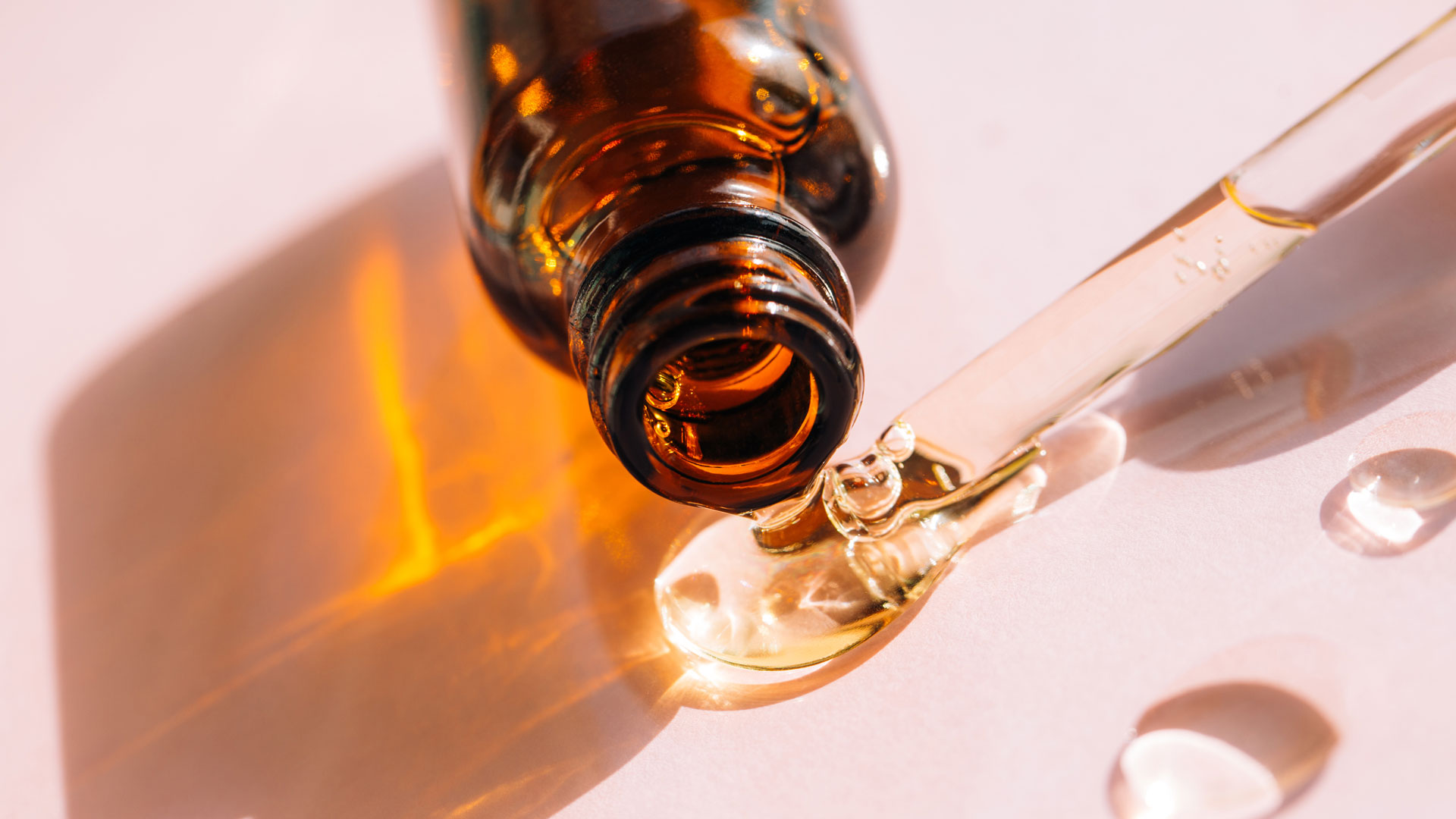
Vitamin E
Vitamin E is a fat-soluble vitamin that is used to maintain healthy skin, hair, and eyes, as well as being a supporting vitamin for our immune system function.
Dr. Perry tells Fit&Well how Vitamin E works in the body to protect us on a cellular level. “Vitamin E is another important vitamin as it protects cell membranes and prevents damage to enzymes associated with them,” he says. “Vitamin E is found in vegetable oils such as sunflower oil, grains, oats, nuts, and dairy products.”
Dr. Laikas agrees that Vitamin E is vital for proper immune function. “Vitamin E plays an important role in immune function and the regulation of inflammation,” he says. “Some evidence also suggests that older adults need more of this vitamin than younger adults to maintain health during the aging process.”
Dr. Mahmood mentions that Vitamin E can also be useful in effective cancer prevention. “It can also limit the production of cancer-causing cells, as well as play an important role in immune function and regulating inflammation,” he says.
Selenium
Selenium is a mineral found in the soil, that we naturally get from water and some foods. Selenium deficiency is rare, so this probably isn’t one you’ll need to supplement, however those with conditions such as HIV and inflammatory bowel disease may have low Selenium levels.
Dr. Perry explains that Selenium is another powerful antioxidant that can help reduce our risk of developing cancer. “This helps protect the body from cancers, including skin cancer caused by sun exposure,” he says. “It also preserves tissue elasticity and slows down the aging and hardening of tissues associated with oxidation. Dietary sources of the mineral include whole grain cereals, seafood, garlic, and eggs.”
What speeds up aging?
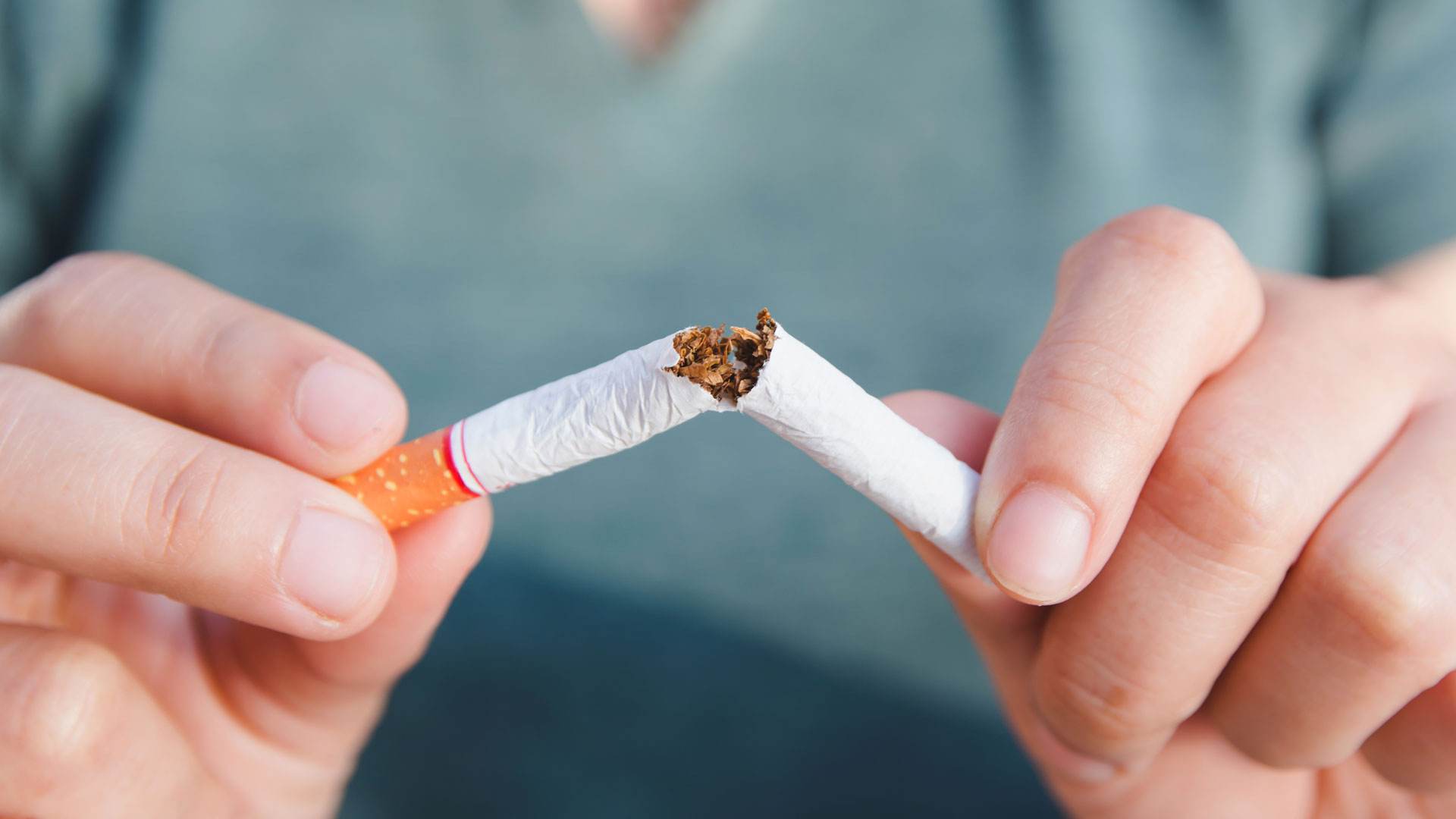
Aging is a complex process, but there are several lifestyle choices that you could be making that speed up your aging process, causing visible signs of premature aging or overall poor health.
Dr. Perry gives us his top culprits for poor aging. “The main cause of premature aging is sun exposure, smoking, excessive drinking excessively, poor diet and lack of sleep, all of which will speed up the aging process.”
A review in the American Journal of Addictions indicates that quality of life is much lower in smokers, and improves significantly upon quitting. So, as well as potentially helping you to live longer, quitting smoking might make you enjoy your life more!
Dr. Mahmood explains how sun damage and diet can speed up the aging process. “In addition to overexposure to the Sun, dietary choices can play a major factor in speeding up aging,” he says. “When fat or protein combine with sugar, advanced glycation end products (AGEs) are formed. AGEs damage collagen, a crucial anti-aging protein.”
Dr. Sarah Brewer, a GP and the Medical Director of Healthspan, tells us her top tips to avoid rapid aging. “Choose your parents carefully (longevity genes give you a running start),” she says. “Eat a healthy diet – a low-salt, low sugar Mediterranean style diet rich in fruit, veg, nuts, seeds, whole grains, olive oil, garlic, low-fat dairy, fish, and relatively low in meat. Those who most closely followed this way of eating have the longest telomeres (protective caps on chromosomes that allow cells to divide and regenerate), and might expect to live, on average, 4.5 years longer than those not following a Mediterranean diet.
In addition to this, Dr. Brewer recommends these measures to promote a successful aging process:
- “Maintain a healthy weight
- Exercise regularly
- Don’t smoke
- Limit your alcohol intake
- Maintain strong social networks
- Think positively and never give up your goal to live a long and healthy life”
Looking for more on this? Discover 5 foods for anti-aging, or try your hand at these anti-aging yoga moves.

Lou Mudge is a Health Writer at Future Plc, working across Fit&Well and Coach. She previously worked for Live Science, and regularly writes for Space.com and Pet's Radar. Based in Bath, UK, she has a passion for food, nutrition and health and is eager to demystify diet culture in order to make health and fitness accessible to everybody.
Multiple diagnoses in her early twenties sparked an interest in the gut-brain axis and the impact that diet and exercise can have on both physical and mental health. She was put on the FODMAP elimination diet during this time and learned to adapt recipes to fit these parameters, while retaining core flavors and textures, and now enjoys cooking for gut health.
-
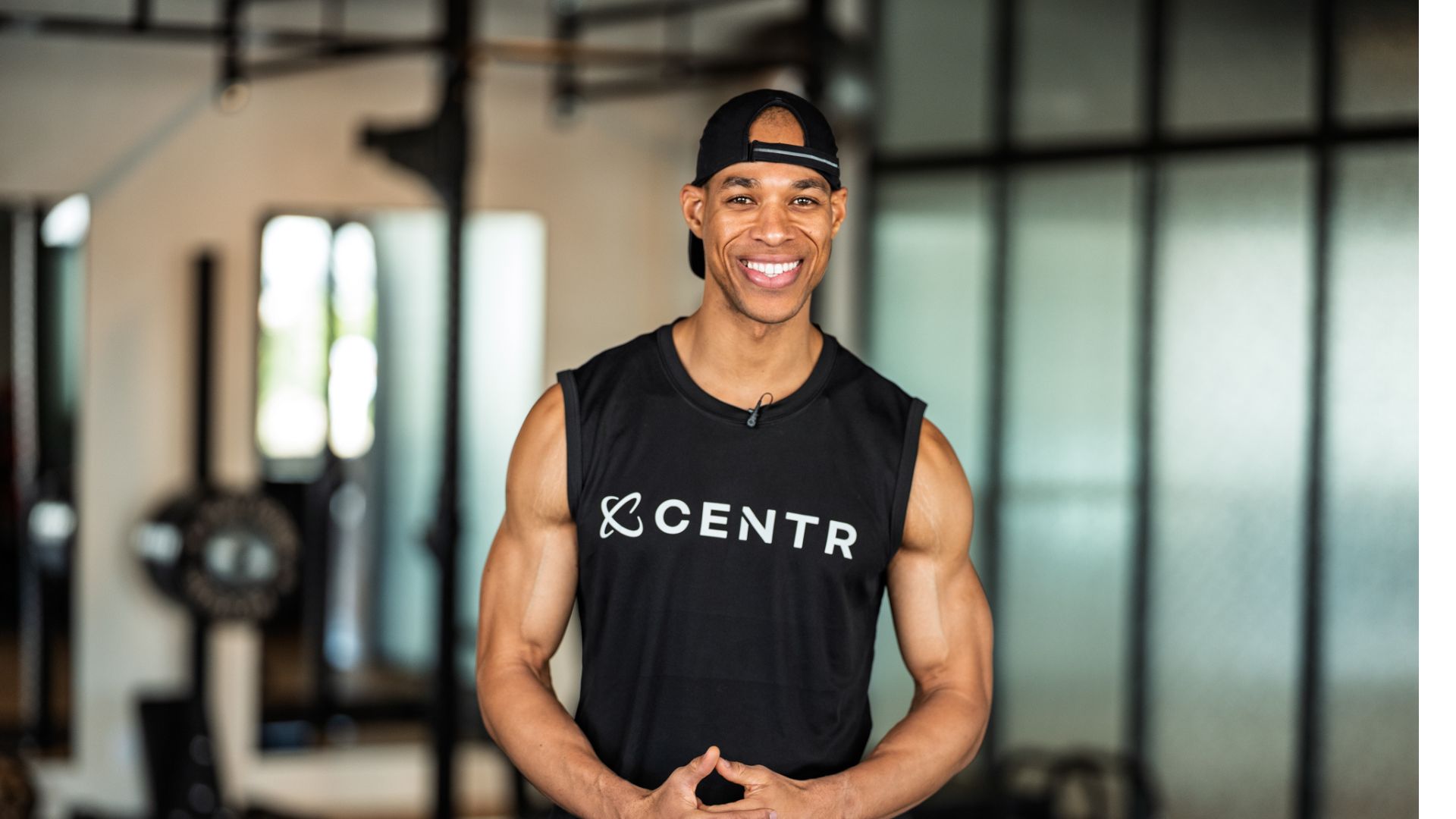 I do these two things every day to stay fit and healthy, says the newest star trainer on Chris Hemsworth's fitness app
I do these two things every day to stay fit and healthy, says the newest star trainer on Chris Hemsworth's fitness appHere's how Centr's Korey Rowe trains for longevity
By Sam Rider Published
-
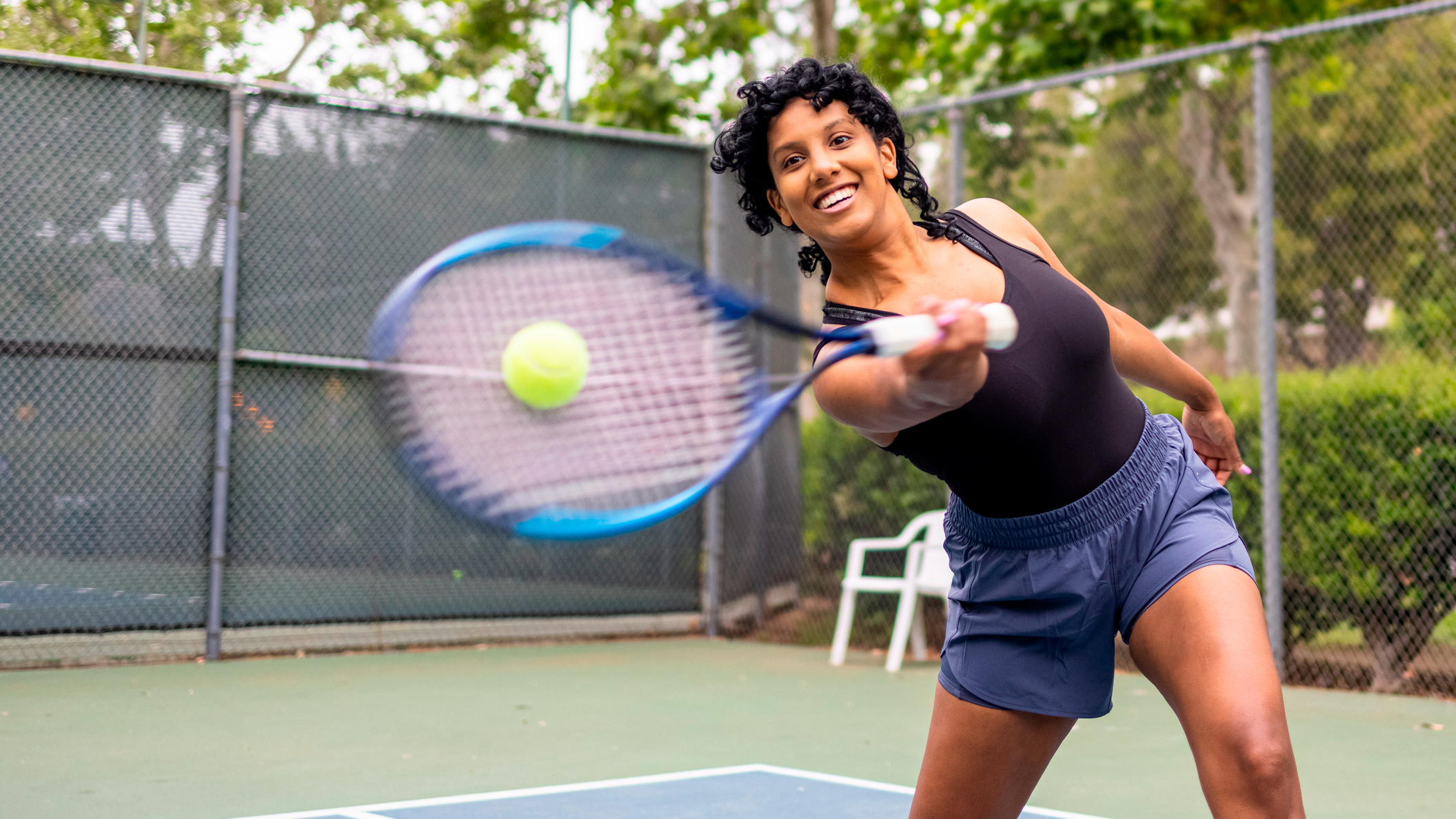 I thought sports weren't for me, until I realised they're a game-changer for ticking off cardio
I thought sports weren't for me, until I realised they're a game-changer for ticking off cardioI swapped HIIT and running for tennis—and I've never felt better
By Alice Porter Published